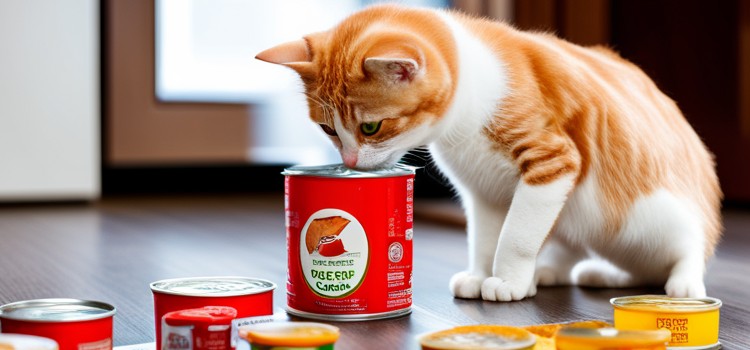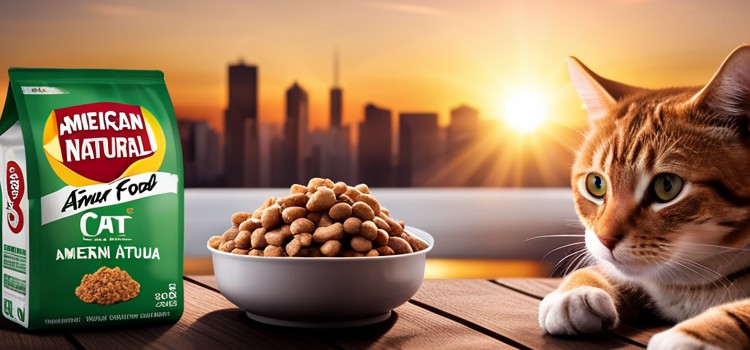As an Amazon Associate committed to the mission of improving the lives of our readers, Live-Clear.com receives a small commission from eligible purchases made through our affiliate links. This revenue enables us to keep producing insightful articles and other material.
If you’re a cat owner, you’ve probably encountered your feline friend’s curious and often peculiar eating habits. Cats can be surprisingly picky, turning their noses up at some foods while showing an unexpected interest in others. The question, “Can cats have fish sauce?” frequently arises. In this comprehensive guide, we’ll explore the ins and outs of feeding fish sauce to your cat, addressing concerns about its safety and potential benefits.

Introduction
Cats are known for being picky eaters, but their curious nature can lead them to explore new flavors. Fish sauce is a popular ingredient in many culinary dishes, known for its robust and savory flavor. Cat owners might wonder if tasting this umami-rich condiment with their furry companions is safe. To answer this question, we must dive into the world of fish sauce, its safety, potential benefits, and the right way to offer it to your cat.
What is Fish Sauce?
Fish sauce is a spicy condiment made from fermented fish, often anchovies or mackerel, mixed with salt. It’s widely used in Southeast Asian and other cuisines to enhance various dishes’ savory, salty, and umami flavors. Fish sauce is standard in many recipes, such as Thai, Vietnamese, and Korean cuisine.
Fish sauce is rich in glutamic acid, responsible for its intense umami flavor. The smell can be overpowering for humans, but for cats, with their keen sense of smell, it can be pretty enticing.
Is Fish Sauce Safe for Cats?
Feeding your cat something new should always be approached with caution. Fish sauce is no exception. Before sharing this condiment with your feline friend, remember some critical considerations.
Sodium Content
One of the main concerns regarding cat and fish sauce is the sodium content. Fish sauce is extremely high in salt, and excessive salt intake can lead to cat health problems, such as dehydration and high blood pressure. Compared to humans, cats have a lower tolerance for salt. Therefore, it’s crucial to keep their sodium intake in check.
Allergies
Another potential issue is allergies. Just as humans can have allergies to certain foods, cats can be allergic to ingredients in fish sauce. The fish used in the sauce and the fermentation process can introduce allergens that may trigger adverse reactions in some cats. If you decide to feed them fish sauce, you must monitor your cat for any signs of allergies, such as itching, sneezing, or digestive issues.
Benefits of Fish Sauce for Cats
While there are some concerns about feeding fish sauce to cats, there are also potential benefits:
Flavor Enhancement
Fish sauce can add a unique and enticing flavor to your cat’s food. If your cat is a picky eater, a slight drizzle of fish sauce may make their meals more appealing. Additionally, fish sauce contains high levels of omega-3 fatty acids, which can promote a healthy coat and skin for your cat. These fatty acids have anti-inflammatory properties that may benefit cats with certain skin conditions or joint issues.
Introducing Variety
Cats can get bored with their food, and introducing new flavors occasionally can stimulate their appetite. Fish sauce, used in moderation, can be a way to add variety to their diet. However, it is essential to note that not all cats may enjoy the taste of fish sauce, so it is recommended to introduce it and observe their reaction gradually. It is also crucial to choose a fish sauce made explicitly for cats and does not contain harmful additives or preservatives.
Appetite Stimulant
The pungent aroma of fish sauce can stimulate a cat’s appetite. If your cat is not eating enough, offering a small amount of fish sauce as a treat may encourage them to eat. However, it is essential to remember that fish sauce should only be used as a temporary solution, not as a substitute for a balanced and nutritious diet. If your cat continues to have a decreased appetite, it is best to consult a veterinarian to rule out any underlying health issues.
Nutrient Boost
Fish sauce contains essential nutrients, including proteins and amino acids. While it shouldn’t replace their regular cat food, a small amount occasionally could provide some nutritional value. However, it is crucial to note that fish sauce should only be given in moderation due to its high sodium content, which can harm cats if consumed excessively. Additionally, it is essential to choose a fish sauce that does not contain any added ingredients, such as garlic or onion, as these can be toxic to cats.

Risks and Considerations
Before deciding to give fish sauce to your cat, it’s essential to be aware of the potential risks and considerations:
High Sodium Content
As mentioned earlier, fish sauce is incredibly high in sodium. Excessive salt intake can lead to cat health problems, such as dehydration, high blood pressure, and kidney issues. It’s crucial to use it sparingly, if at all. Additionally, some cats may have a sensitivity or allergy to fish, so monitoring your cat for any adverse reactions after introducing fish sauce into their diet is essential. If you notice any signs of digestive upset or allergic reactions, it’s best to discontinue use and consult with your veterinarian.
Allergies
Watch for signs of allergies when introducing fish sauce to your cat. If your cat shows signs of an adverse reaction, such as itching, sneezing, or digestive issues, discontinue use immediately. It’s important to remember that not all cats will have a sensitivity or allergy to fish sauce, but it’s always better to be cautious. If your cat has no adverse reactions, you can continue incorporating fish sauce into their diet in moderation.
Quality Matters
If you decide to share a bit of fish sauce with your cat, opt for a high-quality brand with minimal additives. Cheaper, lower-quality options may contain more undesirable ingredients. These ingredients can include artificial flavors, preservatives, and excessive amounts of salt, which can harm your cat’s health. Additionally, it’s a good idea to consult with your veterinarian before introducing any new food or ingredient into your cat’s diet to ensure it aligns with their specific dietary needs and health conditions.
Portion Control
Always use fish sauce in moderation. A few drops or a tiny drizzle is more than enough to introduce the flavor to your cat. Overconsumption can lead to health problems. It’s important to note that fish sauce should never be a substitute for a balanced and nutritious cat food. While it can add variety to their diet, it should only be an occasional treat. Remember to monitor your cat’s reaction to the fish sauce and discontinue use if any adverse effects occur.
Consult Your Vet
Before adding any new food to your cat’s diet, it’s best to consult your veterinarian. They can offer advice based on your cat’s particular nutritional and health requirements. Your vet will be able to assess whether fish sauce is safe for your cat and if it aligns with their nutritional requirements. They may also recommend alternative options that provide the same variety without compromising your cat’s health.
How to Feed Fish Sauce to Your Cat
If, after considering the risks and benefits, you decide to introduce fish sauce to your cat, here are some tips on how to do it safely:
- Dilute It: Mix a tiny amount of fish sauce with water to dilute the sodium content. This will make it less intense and reduce the risk of overconsumption.
- Add It to Food: Drizzle a few drops of diluted fish sauce over your cat’s food. This can make their meal more appealing and encourage them to eat.
- Monitor Their Reaction: Pay close attention to your cat after introducing fish sauce. Keep an eye out for indicators of allergies or stomach problems.
- Use Sparingly: Fish sauce should be a rare treat, not a regular part of their diet. Use it only on occasion and in small amounts.
- Consult Your Vet: Discuss your plans with your veterinarian to ensure that feeding fish sauce aligns with your cat’s dietary and health needs.

Conclusion
In conclusion, while it is technically possible for cats to have fish sauce in small quantities, it’s essential to exercise caution and be mindful of the potential risks. High sodium content and the risk of allergies should not be taken lightly. Before introducing any new food to your cat’s diet, it’s always best to consult your veterinarian to ensure it aligns with your cat’s specific health and dietary needs. Additionally, there are alternative ways to enhance your cat’s meals and stimulate their appetite without the potential risks associated with fish sauce.
Frequently Asked Questions (FAQs)
It’s best to avoid giving your cat fish sauce from a sushi restaurant, as it may be more concentrated and contain additives unsuitable for your cat’s health. To introduce fish sauce to your cat, use a high-quality, pure fish sauce in moderation.
Kittens have even more delicate systems than adult cats. It’s advisable to be extra cautious when introducing new foods to kittens. Feeding kittens fish sauce is generally not recommended due to their smaller size and sensitivity to sodium.
Yes, there are alternative options for enhancing your cat’s food. These include chicken broth (unsalted), tuna juice (in moderation), or specially formulated cat food toppers that provide a range of flavors.
Watch for signs of allergies, including itching, sneezing, diarrhea, vomiting, or gastrointestinal distress. If you notice any of these symptoms, discontinue using fish sauce immediately.
While some fish sauces are of higher quality and contain fewer additives, it’s essential to remember that all fish sauces are high in sodium. It’s advisable to use any fish sauce sparingly, if at all, and ensure it is as pure as possible.
Amazon and the Amazon logo are trademarks of Amazon.com, Inc, or its affiliates.



